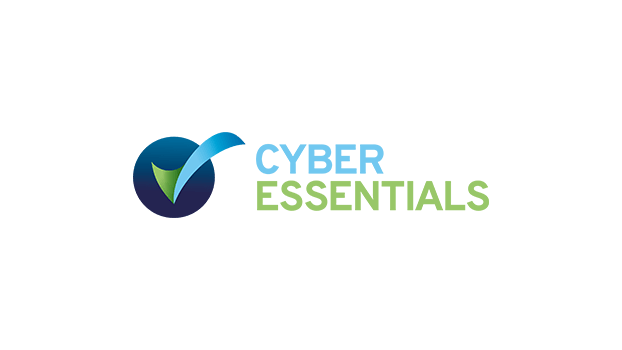In today's interconnected digital landscape, cyber security has become a critical concern for organisations of all sizes, including small and medium-sized enterprises (SMEs) and educational institutions. With AI rapidly evolving , this concern is now more prevalent than ever in organisations and educational institutions.
Organisations are therefore aware they need to protect themselves effectively against all forms of cyber attacks. However, there are several misconceptions surrounding cyber security that often hinder the implementation of effective measures, leaving organisations vulnerable. In this comprehensive blog, we will explore and debunk 10 common myths related to cyber security, offering insights to empower SMEs and educational institutions in strengthening their cyber defences.
1. Cyber Security Is a Problem for the IT Team
The belief that cyber security is solely the responsibility of the IT team is a detrimental mindset for your organisation. In reality, Cyber Security is a shared responsibility that involves every individual within an organisation. Employees play a crucial role in maintaining a secure environment by adhering to best practices, attending training sessions, and reporting suspicious activities promptly.
When it comes to cyber security, the people within an organisation are generally the weakest link. Research conducted by Datto showed that a lack of cyber security training was one of the most common causes of a ransomware breach. Training your teams on what to look out for bridges the cyber security gap your organisation may have!
2. Organisations Are Not Concerned About Whether You Have a Cyber Essentials Accreditation or Not
One prevalent misconception is that other organisations don't prioritise Cyber Essentials accreditation when considering partnerships or collaborations. The reality is that Cyber Essentials certification instills trust among clients and partners, demonstrating a clear commitment to cyber security best practice. Many organisations now view Cyber Essentials as a baseline requirement, considering it an indicator of an organisations dedication to securing sensitive information.
Cyber Essentials is a government-backed scheme that outlines cyber security standards that businesses should adhere to in order to remain protected against cyber attacks.
There are two components of the Cyber Essentials Scheme: Cyber Essentials and Cyber Essentials Plus. Cyber Essentials is a self-assessment option that allows you to identify and foil common cyber attacks independently. You have full control of this which enables you to strengthen your organisation's overall security posture. However, for enhanced robustness and an increased level of trustworthiness, the Cyber Essentials Plus option provides a more comprehensive and rigorous process. This is carried out by an external assessor who will complete a thorough review of your IT systems.
Some people and/or organisations won’t work with another organisation that has not undergone a Cyber Essentials accreditation, fearing that they could be a liability to their own organisation’s cyber security resilience.
At Sharp, we can help you achieve your Cyber Essentials accreditation, guiding you through the process and ensuring you meet all of the criteria.

3. I’m Cyber Essentials Certified, So That Means I’m Safe All Year Round
Another Cyber Essentials myth is thinking that passing the annual accreditation means you are set for the year.
While achieving Cyber Essentials certification is a positive step towards enhanced cyber security, it does not guarantee continuous safety. Cyber threats are dynamic, and new vulnerabilities emerge regularly. Organisations need to continuously update their cyber security measures, conduct regular risk assessments, and stay informed about the latest threats to maintain a resilient security posture.
Cyber Essentials as a Service allows our clients to maintain compliance for all their endpoints against the Cyber Essentials requirements all year round. Our clients can rest assured that they remain in the scope of the Cyber Essentials framework all year round and therefore do not have to worry about annual gap analysis and unexpected remediation costs, as any issues or endpoints that fall out of scope will be flagged and remediated before the annual recertification.
4. I’m a Small Business or Organisation; I’m Not Likely to Be a Target for a Cyber Attack Over a Bigger Organisation
This myth is dangerous as it underestimates the attractiveness of small businesses to cyber criminals. SMEs are the prime target for cyber attacks. While larger organisations may have more data, small businesses are often perceived as easier targets with potentially weaker security measures. Cyber criminals recognise that SMEs may lack the resources to invest in robust cyber security, making them vulnerable to attacks.
The impact of a cyber attack on an SME can be damaging. The financial implications of the breach can be hefty, on top of the significant downtime which occurs due to the investigation and remediation phase. With the average cost of a data breach in the UK now being around £3.2 million, this is a cost that most SMEs simply cannot afford.
A breach doesn’t just affect businesses financially, it can also be damaging to their reputation, leading to a decline in customer trust, and in the worst cases loss of business or business closure.
SMEs need to ensure that they have the appropriate cyber security measures in place. This includes standard technology such as firewalls, malware detection, and encryption to protect data from being accessed by unauthorised personnel. Additionally, implementing a strong password policy, adding multi-factor authentication for all services, and providing regular employee training are all key steps in protecting your organisation from cyber threats.
Security Awareness as a Service is a de-risking, training, and education solution to help organisations maintain ongoing cyber security training for their teams all year round. There are three options within the Security Awareness as a Service offering – Phishing Tests Only, Security Training Only, or a package that combines both.
5. Having Firewall Protection Is Enough
A firewall is a crucial component of every business’ cyber security strategy, but relying solely on it is a risky plan. Firewalls primarily act as a barrier between a trusted internal network and untrusted external networks. However, cyber threats have evolved, and modern attacks often involve tactics that can bypass traditional firewalls. A comprehensive cyber security approach includes multiple layers of defence, such as intrusion detection systems and regular security updates.
Have you heard of the term ‘human firewall’? This is a cyber security concept that refers to the role of individuals within an organisation in preventing and mitigating security threats. While traditional firewalls are technical mechanisms designed to monitor and control network traffic, a human firewall involves educating and empowering people to recognise and respond to potential cyber threats. Essentially, every employee becomes a line of defence against cyber attacks. This can only be achieved through building a security-aware culture within your organisation.
6. Anti-Virus Software Is Enough to Protect Against All Cyber Threats
Anti-virus software is a fundamental component of cyber security, but it is not a remedy for all threats, as outlined in this blog: Why Anti-Virus Isn’t Good Enough Anymore. Cyber criminals use sophisticated methods, including zero-day exploits (a cyber attack that takes advantage of a previously unknown and unpatched software vulnerability) and social engineering tactics such as phishing (deceptive emails which can look legitimate at first glance), which may bypass traditional anti-virus measures.
Organisations should complement anti-virus software with other security layers, such as endpoint detection and response solutions, to enhance overall protection.

7. Educational Institutions Are Not Attractive Targets for Cyber Attacks
Educational institutions ranging from nurseries, schools and universities to research centres, store vast amounts of sensitive information, making them attractive targets for cyber criminals. Student records, research data, and intellectual property are valuable assets that can be exploited for financial gain or malicious activities. Ransomware attacks on educational institutions have become increasingly common, highlighting the importance of robust cyber security measures.
Cyber Security attacks on schools are on the rise. Early 2023, the BBC News reported that “14 schools had highly confidential documents leaked online by hackers.” A high school in Suffolk was also subject to a cyber attack, just before the new term was about to begin in September 2023. Luckily, no personal data was compromised, but the head teacher at the school said that it did take down the school's computer facilities.
There is currently an increased threat against schools across the UK, which is why having a robust cyber security strategy in place is crucial to prevent incidents like this from happening to your organisation. Implementing cyber security measures, which encompass firewalls, anti-virus software, and data encryption, can be facilitated through the assistance of IT Support Services. IT Support professionals are skilled at deploying strategies aimed at thwarting potential breaches and swiftly addressing any data breach or security incident that may occur.
Valuable frameworks like Cyber Essentials and Cyber Essentials Plus offer industry-endorsed cyber security guidelines, supported by the UK Government. These guidelines serve as a robust reference for the fundamental controls that schools should establish. Consequently, schools are better equipped to safeguard both themselves and their data from unauthorised access and theft. At Sharp, we can help you with your school’s cyber security. Learn more about our IT Solutions for Education offering here: https://www.sharp.co.uk/it-solutions-for-education.
8. Cyber Insurance Eliminates the Need for Robust Cyber Security Measures
While cyber insurance can help mitigate financial losses in the event of a cyber incident, it should not replace a strong cyber security posture. Insurance providers often require evidence of good cyber security practices such as the Cyber Essentials certification, and organisations must take proactive measures to prevent incidents. Cyber insurance should be viewed as a part of a comprehensive cyber security strategy, not a substitute for it.
We always recommend a multi-layered approach to cyber security and this includes a strategic business continuity plan and most importantly, that your employees – your first line of defence – are well-prepared and in a good position to be able to defend you from malicious threats and attacks.
9. Cyber Security Is Too Expensive for SMEs and Educational Institutions
Contrary to popular belief, effective cyber security measures don't always require exorbitant budgets. Many cost-effective solutions, such as open-source security tools and cloud-based services, are available for SMEs and educational institutions. Investing in basic cyber security practices, employee training, and adopting a risk-based approach can significantly improve security without breaking the bank.
Partnering with the right IT Support Provider will also be beneficial. At Sharp, our cyber security solutions are completely bespoke to suit your organisation’s needs and are scalable – you won’t pay for what you don’t need, but we will ensure that your organisation is sufficiently protected.
10. I’ve Implemented Cyber Security Measures, So Now I Am Secure
Achieving a certain level of cyber security maturity is commendable, but organisations must understand that cyber security is an ongoing process. Threat landscapes evolve, and new vulnerabilities emerge. Regularly updating security measures, conducting penetration testing, and staying informed about the latest threats are crucial components of maintaining a resilient security posture.

Dispelling these common myths is essential for SMEs and Educational Institutions to build a robust cyber security foundation. By understanding the realities of the cyber threat landscape and adopting proactive measures, organisations can protect their assets, maintain the trust of clients and partners, and contribute to a more secure digital environment.
Cyber security is a collective responsibility, and staying informed is the first step towards building a resilient defence against the ever-evolving landscape of cyber threats.




